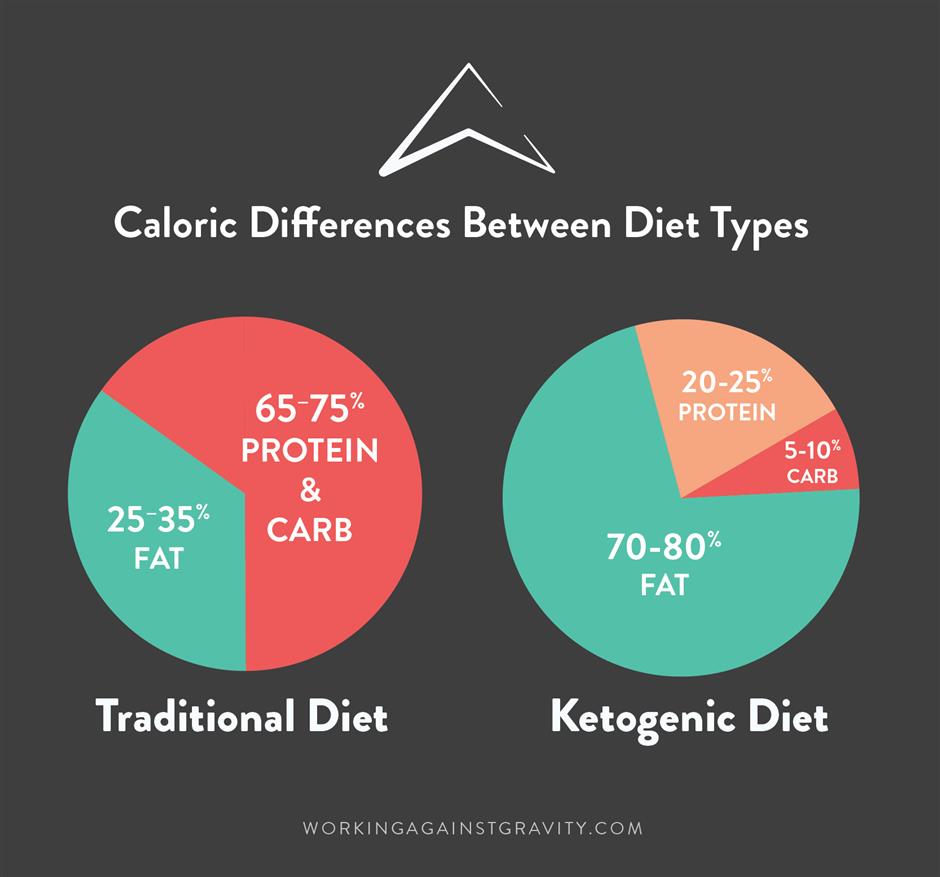High carb, low carb, high fat, low fat, keto! There are so many different diet trends out there and we get that it can be confusing to keep them straight. The ketogenic diet has been getting a lot of attention recently, and you may be wondering what it is and if it’s a good option for you. We’re here to help.
Let’s start with the basics: What is the ketogenic diet?
A ketogenic diet is characterized by a very low intake of carbohydrates, a moderate intake of protein and a high intake of dietary fat. Usually, someone “eating keto” consumes 70–80% calories from fat and 5–10% calories from carbohydrates. [1] For comparison, a traditional diet typically contains about 25–35% calories from fat and 45–55% calories from carbohydrates. [2]

In a traditional diet, your body’s cells use the byproduct of carbohydrate breakdown (called glucose) as their primary energy source. The body will then use that glucose as fuel or store it in your liver and muscles as glycogen.
Advertisement
When you follow a ketogenic diet, your body doesn’t have those glycogen stores and needs to call on alternative sources of energy. Enter your fat stores. Ketones are a byproduct of our body breaking down stored fat for energy. As ketones build up in your body, they are released through the urine. After a while, your body will enter “ketosis,” which means it will start breaking down fat stores to produce energy, rather than carbohydrates. [3,4]
Now, the important question: Is the ketogenic diet right for you?
As is true with much of nutrition, there isn’t a black and white answer to which diet is perfect for you. Everyone’s bodies, goals, preferences, and activity levels differ. This is why hiring a coach who can help you determine what macronutrient breakdown works best for you can be helpful.
In the meantime, here are a few reasons a ketogenic diet might work for you:
- You have struggled with weight loss or body composition changes with a consistent, more traditional diet approach.
- You enjoy eating higher-fat foods. Food preference needs to be taken into account since a majority of calories come from higher-fat foods.
- You have an extremely busy schedule that only allows for a few mealtimes each day (such as night shift workers).
Here are a few factors that might make sticking to a ketogenic diet more tricky:
Advertisement
- You are involved in high-intensity training. Since carbohydrates are a quicker energy source, limiting intake may impact performance and recovery.
- You generally dislike higher-fat foods (avocado, nuts, seeds, oils) and/or really enjoy higher-carb foods (like grains, fruit, and starchy veggies).
- You are someone who loves to eat large meals. Keto diets are typically characterized by fewer, smaller meals since fat sources are dense and carb portions have to stay extremely small.
And no matter what, if you have a significant medical condition you should speak to your doctor first before starting any type of diet plan.
If you’re still curious about keto and want advice specific to your preferences and lifestyle, find out how WAG works and we’ll make sure you’re matched with a coach who can help you achieve your goals!
References:
References:
- Bueno, N. B., de Melo, I. S., de Oliveira, S. L., & da Rocha, T. (2013). Very-low-carbohydrate ketogenic diet v. low-fat diet for long-term weight loss: a meta-analysis of randomized controlled trials. Br J Nutr. 110(7). doi: 10.1017/S0007114513000548.
- USDA. (2015, Dec). 2015 – 2020 dietary guidelines for americans. Retrieved from https://health.gov/dietaryguidelines/2015/guidelines/.
- Paoli, A. (2014). Ketogenic Diet for Obesity: Friend or Foe? Int J Environ Res Public Health. doi:10.3897/bdj.4.e7720.figure2f
- Paoli, A., Bosco, G., Camporesi, E. M., & Mangar, D. (2015). Ketosis, ketogenic diet and food intake control: A complex relationship. Frontiers in Psychology,6. doi:10.3389/fpsyg.2015.00027






